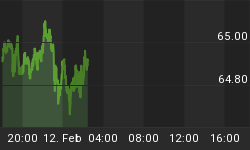Back in 2006, the United Nations and the United States imposed sanctions that were intended to choke off any chance of funding for North Korea’s nuclear and ballistic missile programs. But this is 2019, and those sanctions haven’t kept with our cyber times, or lucrative cyber crimes. Bypassing sanctions, is a digitally-inspired big business.
According to a new UN Security Council report detailed by Reuters, North Korea has been supporting its weapons program through sophisticated cyberattacks designed to hack into banks and cryptocurrency exchanges.
So far, the report says, Pyongyang has earned as much as $2 billion since 2016.
“Democratic People’s Republic of Korea cyber actors, many operating under the direction of the Reconnaissance General Bureau, raise money for its weapons of mass destruction programs, with total proceeds to date estimated at up to two billion US dollars,” the report said.
There have been at least 35 reported instances in 17 countries in which North Korea-affiliated actors attacked financial institutions and cryptocurrency exchanges, according to the report.
Cyber analysts have also recently claimed that North Korea has invested significant resources in developing its cyber capabilities and using it to evade the sanctions, according to the Wall Street Journal.
North Korea’s hacking doesn’t tend to follow the patterns of other state-sponsored hacking, which is generally more of an espionage activity, not a bank robbery.
Related: Why Central Banks Are Dumping The Dollar North Korean hackers focus solely on getting away with as much money as possible and generating cash to counter international sanctions that have desperately squeezed the economy.
In 2017 and 2018, North Korean hackers successfully breached at least five cryptocurrency exchanges in Asia causing over $570 million in losses.
The bulk of the haul here came from the January 2018 hack of the Japan-based Coincheck exchange.
The UN report also blames North Korean hackers for the 2016 theft of $81 million from Bangladesh Bank.
The key here is North Korea’s Reconnaissance General Bureau, the equivalent of the CIA. It is said to have two cyber operations units known as Bureau 121 and the No. 91 Office.
Some of our first insight into these bureaus came last year when Washington charged a North Korean computer programmer in connection to a series of high-profile cyber attacks.
The programmer, Park Jin Hyok, was believed to be working for the “Lazarus Group”, a North Korean-sponsored hacking organization behind the infamous Sony breach in 2014.
Those hacking forays later crept into larger attacks on financial institutions.
Related: Trader Compares Current Market Environment To 2007
In 2017, $60 million was stolen from Taiwan's Far Eastern bank after the bank's computer systems were attacked by malware. The 2016 Bangladesh bank job was believed to have been the work of the same group.
The group has also targeted banks in Poland, Ecuador and Mexico.
Trump has met with North Korea leader Kim Jong Un three times, most recently in June when he became the first sitting U.S. president to set foot in the isolated country.
The two agreed to resume stalled talks aimed at getting North Korea to give up its nuclear weapons program. According to the US administration, the talks were satisfying.
However, earlier this week, North Korea fired what are believed to be two short-range ballistic missiles, the fourth missile launch in less than two weeks. These actions do not constitute a breach of the suspension of nuclear and missile tests because they were not long-range missiles.
By Michael Kern for Safehaven.com
More Top Reads From Safehaven.com:

















